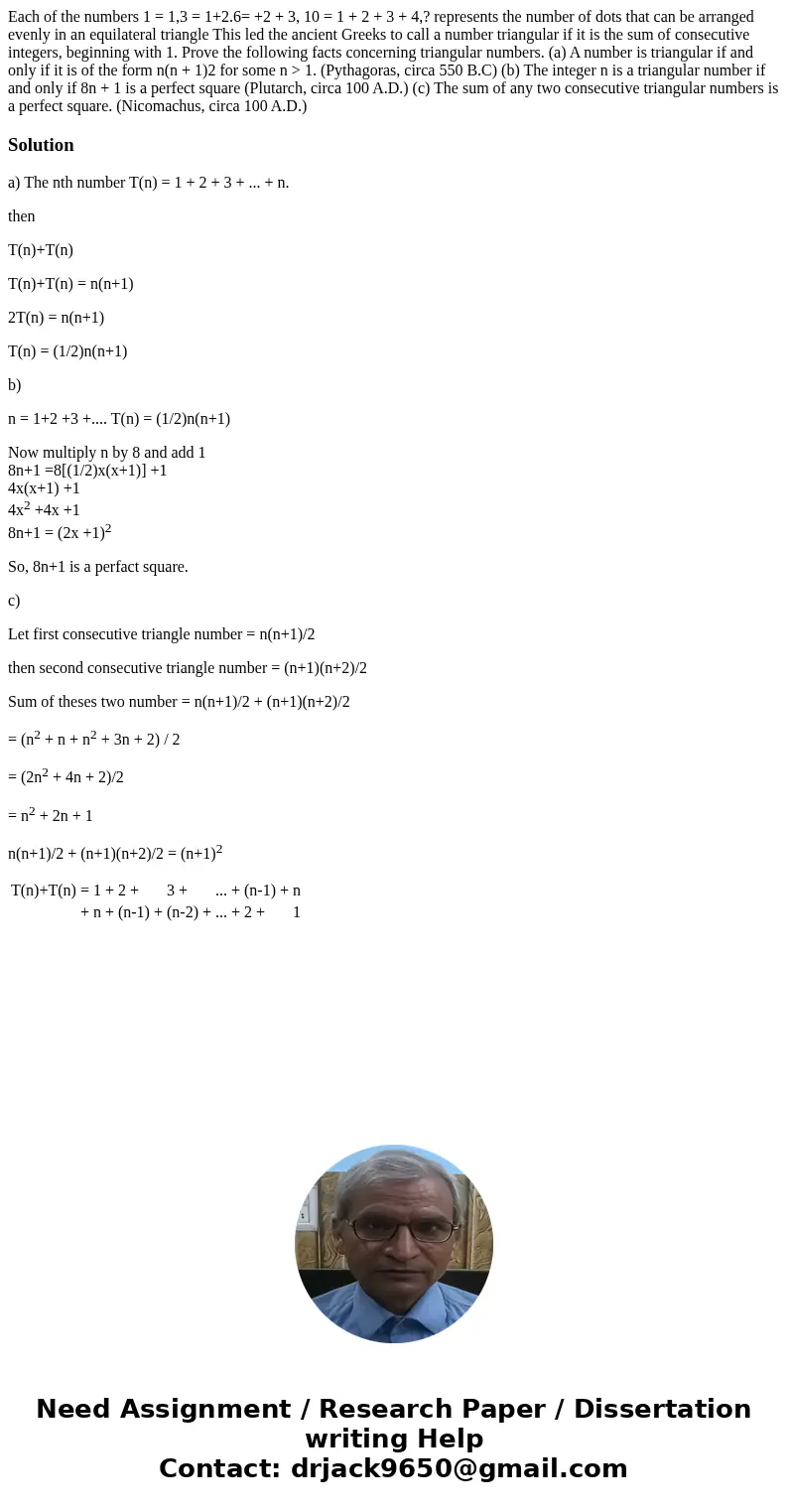Each of the numbers 1 13 126 2 3 10 1 2 3 4 represent
Each of the numbers 1 = 1,3 = 1+2.6= +2 + 3, 10 = 1 + 2 + 3 + 4,? represents the number of dots that can be arranged evenly in an equilateral triangle This led the ancient Greeks to call a number triangular if it is the sum of consecutive integers, beginning with 1. Prove the following facts concerning triangular numbers. (a) A number is triangular if and only if it is of the form n(n + 1)2 for some n > 1. (Pythagoras, circa 550 B.C) (b) The integer n is a triangular number if and only if 8n + 1 is a perfect square (Plutarch, circa 100 A.D.) (c) The sum of any two consecutive triangular numbers is a perfect square. (Nicomachus, circa 100 A.D.)

Solution
a) The nth number T(n) = 1 + 2 + 3 + ... + n.
then
T(n)+T(n)
T(n)+T(n) = n(n+1)
2T(n) = n(n+1)
T(n) = (1/2)n(n+1)
b)
n = 1+2 +3 +.... T(n) = (1/2)n(n+1)
Now multiply n by 8 and add 1
8n+1 =8[(1/2)x(x+1)] +1
4x(x+1) +1
4x2 +4x +1
8n+1 = (2x +1)2
So, 8n+1 is a perfact square.
c)
Let first consecutive triangle number = n(n+1)/2
then second consecutive triangle number = (n+1)(n+2)/2
Sum of theses two number = n(n+1)/2 + (n+1)(n+2)/2
= (n2 + n + n2 + 3n + 2) / 2
= (2n2 + 4n + 2)/2
= n2 + 2n + 1
n(n+1)/2 + (n+1)(n+2)/2 = (n+1)2
| T(n)+T(n) | = | 1 + | 2 + | 3 + | ... + | (n-1) + | n |
| + | n + | (n-1) + | (n-2) + | ... + | 2 + | 1 |

 Homework Sourse
Homework Sourse